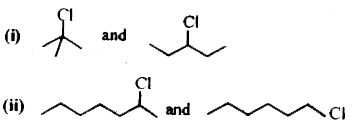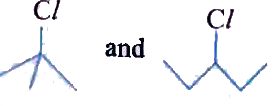Which compound undergoes iodoform reaction ?
HCHO
CH3CHO
CH3OH
CH3COOH
The correct Answer is:B
To determine which compound undergoes the iodoform reaction, we need to understand the characteristics of compounds that can participate in this reaction. The iodoform reaction is primarily associated with methyl ketones and certain secondary alcohols.
1. Understand the Iodoform Reaction:
- The iodoform reaction involves the oxidation of methyl ketones or specific secondary alcohols to produce iodoform (CHI3) and a carboxylate ion.
2. Identify the Structure of Compounds:
- Methyl ketones have the general structure RCOCH3, where R can be any alkyl or aryl group.
- Secondary alcohols that can undergo this reaction must have a methyl group (CH3) attached to the carbon that is bonded to the hydroxyl group (OH).
3. Examples of Compounds:
- Methyl Ketones: Acetone (CH3COCH3) is a classic example that will undergo the iodoform reaction.
- Secondary Alcohols: Ethanol (CH3CH2OH) can be oxidized to acetaldehyde (which is a methyl aldehyde) and can also undergo the iodoform reaction.
4. Evaluate Given Options:
- If the question provides a list of compounds, we need to check each one to see if it meets the criteria for the iodoform reaction.
- Formaldehyde (HCHO): Does not undergo the iodoform reaction.
- Acetaldehyde (CH3CHO): Undergoes the iodoform reaction.
- Ethanol (CH3CH2OH): Can be oxidized to acetaldehyde and can undergo the iodoform reaction.
- Methyl Ketones: Any compound with the structure RCOCH3 will undergo the iodoform reaction.
5. Conclusion:
- The compounds that can undergo the iodoform reaction include methyl ketones like acetone, acetaldehyde, and certain secondary alcohols like ethanol.
Final Answer:
The compounds that undergo the iodoform reaction are methyl ketones (e.g., acetone) and acetaldehyde.
- The iodoform reaction involves the oxidation of methyl ketones or specific secondary alcohols to produce iodoform (CHI3) and a carboxylate ion.
- Methyl ketones have the general structure RCOCH3, where R can be any alkyl or aryl group.
- Secondary alcohols that can undergo this reaction must have a methyl group (CH3) attached to the carbon that is bonded to the hydroxyl group (OH).
- Methyl Ketones: Acetone (CH3COCH3) is a classic example that will undergo the iodoform reaction.
- Secondary Alcohols: Ethanol (CH3CH2OH) can be oxidized to acetaldehyde (which is a methyl aldehyde) and can also undergo the iodoform reaction.
- If the question provides a list of compounds, we need to check each one to see if it meets the criteria for the iodoform reaction.
- Formaldehyde (HCHO): Does not undergo the iodoform reaction.
- Acetaldehyde (CH3CHO): Undergoes the iodoform reaction.
- Ethanol (CH3CH2OH): Can be oxidized to acetaldehyde and can undergo the iodoform reaction.
- Methyl Ketones: Any compound with the structure RCOCH3 will undergo the iodoform reaction.
- The compounds that can undergo the iodoform reaction include methyl ketones like acetone, acetaldehyde, and certain secondary alcohols like ethanol.
The compounds that undergo the iodoform reaction are methyl ketones (e.g., acetone) and acetaldehyde.
Similar Questions
Knowledge Check
Which compound gives iodoforms by reactions betweenl2 and NaOH ?
ACH3OHBC2H5OHCC3H7OHDC2H5−O−C2H5Which of the following compound undergoes haloform reaction?
ACH3COCH3BHCHOCCH3CH2BrDCH3−O−CH3Which compound undergo Cannizzro's reaction ?
AMethanalBEthanalCPrpanoneDBenzaldehyde
In the following pairs of halogen compounds, which compound undergoes faster SN1 reaction?

View SolutionIn the following pairs of halogen compounds, which compound undergoes SN1 reaction faster?

View SolutionIn the following pairs of halogen compounds, which compound undergoes faster SN1 reaction?

View SolutionWhich one of the following does not undergo iodoform reaction ?
View SolutionA typical compound undergoes Cannizzaro's reaction as well as aldol condensation. The possible compound is
View Solution



